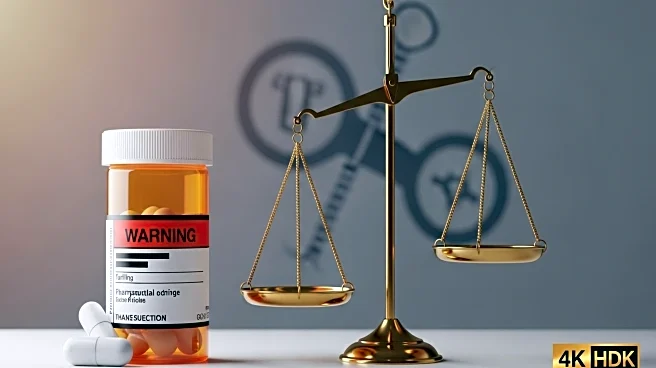What's Happening?
President Trump has announced a 100% tariff on branded or patented pharmaceutical products imported into the U.S., set to begin on October 1. This move is part of an effort to lower drug prices by encouraging pharmaceutical companies to match the low prices they offer in other countries. However, the pharmaceutical industry warns that these tariffs could increase drug prices for U.S. consumers and hinder drug development. Exemptions for generic drugs and companies with U.S.-based manufacturing facilities may limit the tariffs' impact. Major drugmakers have been preparing for these tariffs by stockpiling supplies and expanding U.S. production facilities.
Why It's Important?
The imposition of tariffs on pharmaceutical imports could have significant economic implications, potentially raising drug prices for consumers and affecting the pharmaceutical industry's investment in research and development. While the exemptions may mitigate some of the impact, the tariffs could still lead to higher costs for branded drugs. The move reflects ongoing efforts to address the high cost of prescription drugs in the U.S., which is a critical issue for consumers and policymakers.
What's Next?
As the tariffs are set to take effect, pharmaceutical companies and industry groups are likely to continue lobbying for exemptions and adjustments. The impact on drug prices and availability will depend on how companies adapt to the new tariffs and whether further negotiations lead to changes in the policy. The situation will be closely monitored by stakeholders, including consumers, healthcare providers, and policymakers.










